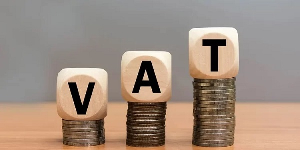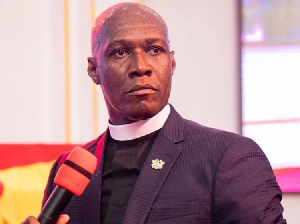The Electricity Company of Ghana (ECG) has been a subject of debate regarding its privatization for years or otherwise. Proponents argue that privatization could improve efficiency and service delivery, while critics express concerns about potential drawbacks. Truth be told, privatization of ECG will not be the optimal solution and advocates for sustainable public ownership.
History in focus: Before the privatization of the Electricity Company of Ghana (ECG) to Power Distribution Services (PDS), ECG was honouring over 80 percent of the monthly invoices owed to Independent Power Producers (IPPs) and has kept our operations fluid.
However, following the privatization, a drastic shift occurred: ECG ceased receiving any revenue, leaving it unable to fulfil its financial commitments to the IPPs, and accumulated debt to over USD$1.8 billion at the time.
This, call for the privatization of the ECG must be driven not by some imaginary ideal type of organization that will overcome all of its challenges just because it is privatized.
As a country, we have gone that path many times in the past, but what has been the effect on those organizations??
The debate over the privatization or otherwise of the ECG should take into consideration the following facts:
1. Importance of Reliable Electricity:
Electricity is a vital component of economic development, powering industries, homes, and essential services. In Ghana, ensuring a reliable electricity supply is crucial for achieving sustainable development goals and improving living standards.
2. Challenges of Privatization:
a. Profit Maximization vs. Public Service: Privatization often prioritizes profit maximization over public service. Private companies may focus on affluent areas, neglecting rural and low-income communities.
b. Tariff Increases: Privatization can lead to tariff hikes, burdening consumers, especially those with limited purchasing power.
c. Job Losses: Private ownership may result in workforce reduction, exacerbating unemployment and social challenges.
d. Infrastructure Neglect: Private investors may prioritize short-term gains, neglecting long-term infrastructure investments necessary for national development.
3. Lessons from Other Privatizations:
a. Water Privatization in Ghana: Previous attempts to privatize water utilities in Ghana led to service deterioration, tariff hikes, and public backlash, ultimately resulting in re-municipalization.
b. Global Examples: International experiences with utility privatization have shown mixed results, with instances of failure and renationalization due to service quality concerns.
4. Alternative Solutions:
a. Efficiency Improvements: Enhancing ECG's operational efficiency through modernization, technology adoption, and capacity building can improve service delivery without privatization.
b. Regulatory Reforms: Strengthening regulatory frameworks to ensure accountability, transparency, and consumer protection is crucial for enhancing utility performance.
c. Public-Private Partnerships (PPPs): Collaborative models that combine public ownership with private sector expertise can harness efficiency gains while safeguarding public interests.
5. Sustainable Public Ownership:
a. Community Engagement: Empowering communities in decision-making processes ensures that electricity provision aligns with local needs and priorities.
b. Investment in Human Capital: Investing in ECG's workforce and equipping them with necessary skills enhances service quality and fosters organizational resilience.
c. Long-Term Planning: Adopting a strategic approach to infrastructure development and service provision ensures sustainable electricity access for future generations.
Privatization of ECG may seem appealing, but it poses significant risks to equitable access, affordability, and service quality.
Instead of pursuing privatization, Ghana should focus on strengthening the governance structure of ECG and the sector as a whole (an all-inclusive representation on the board of ECG), public ownership, regulatory oversight, and community engagement for responsible consumption( as a patriotic duty to pay for energy used), to achieve sustainable electricity provision.
Learning from past experiences and embracing innovative solutions, Ghana can overcome the challenges of energy delivery while fostering inclusive development for all its citizens.
Recommendation to Maintain Public Ownership of ECG
Your Excellency,
I humbly recommend maintaining public ownership of the Electricity Company of Ghana (ECG) amidst calls for privatization.
Privatization may risk the accessibility, affordability, and stability of electricity services, crucial for national development.
By retaining public ownership, we ensure accountability, equitable access, and strategic governance control over a vital national asset.
This decision aligns with the commitment to serving the best interests of all citizens and safeguarding Ghana's energy future. If the conditions that were given to PDS at the time can be made available to the current state of ECG, with a reformed board composition, there will be a turnaround in 3 months.
Dr. Elikplim Kwabla Apetorgbor
CEO, Independent Power Generators, Ghana.
Opinions of Sunday, 21 April 2024
Columnist: Dr. Elikplim Kwabla Apetorgbor















